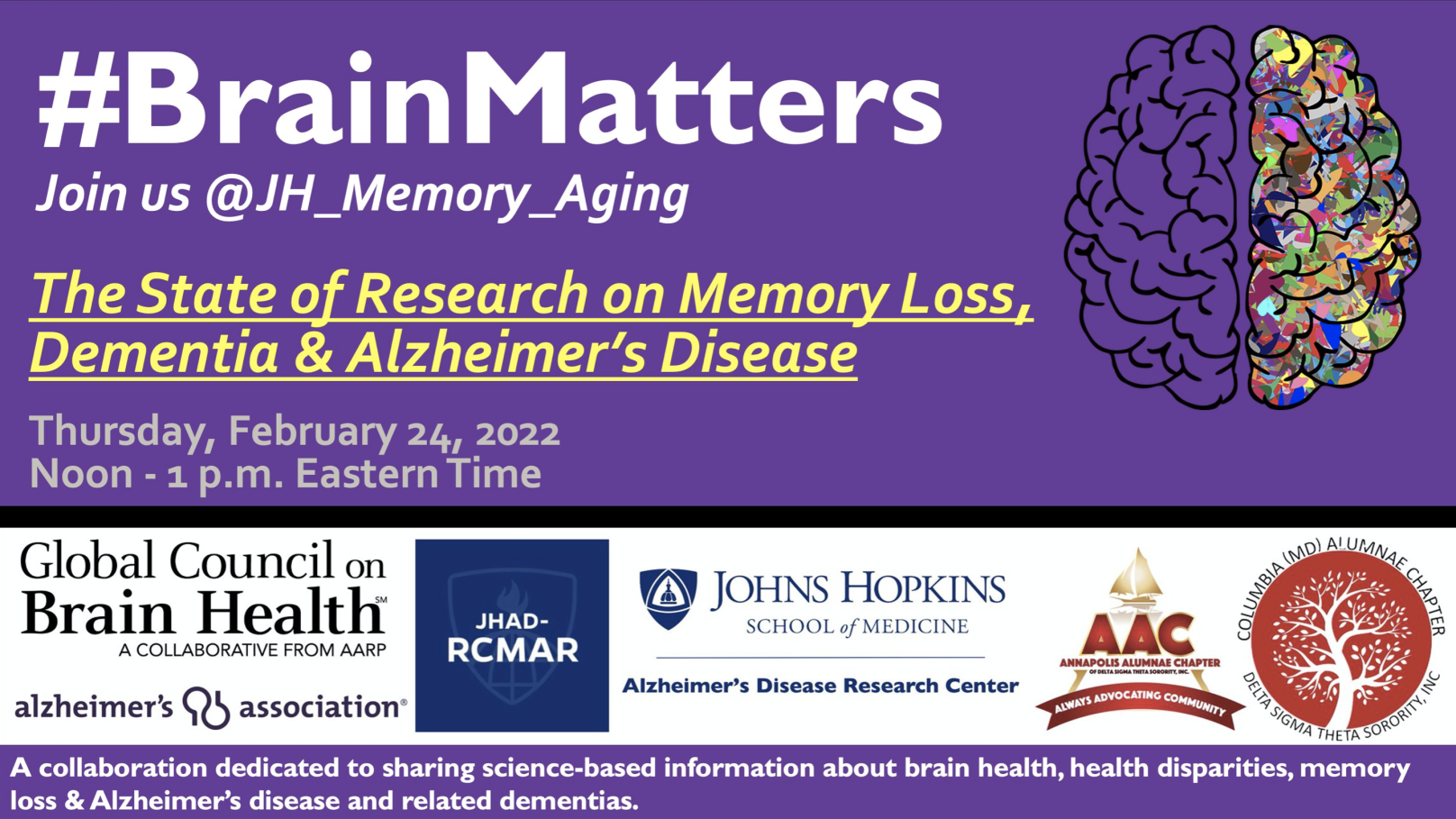Are you interested in research about memory loss, dementia, and Alzheimer’s disease?
I am. I believe research is where the future is—treatments, interventions, discoveries—and, speaking as someone who was a caregiver to my mom who died from a type of frontotemporal dementia known as Pick’s Disease, I find hope and comfort in the promise of interventions for Alzheimer’s disease, dementia, and memory loss. The #BrainMatters Twitter chats described below, facilitated by the Johns Hopkins Alzheimer’s Disease Research Center (JHADRC), are pivotal to sharing critical information among the masses.
Researchers and members of the broader community who want to learn more about research are invited to follow the JHADRC’s “Memory & Aging” Twitter handle on Thursday, February 24 starting at noon ET to catch their #BrainMatters Twitter chat on the “State of Research on Memory Loss, Dementia and Alzheimer’s Disease.” It is very easy to do—simply be on Twitter during the event, and follow @JH_Memory_Aging. The chat will unfold in real time, and anyone may contribute to the conversation.
According to the Alzheimer’s Association’s website: “Recruiting and retaining research participants is now the greatest obstacle, other than funding, to developing the next generation of Alzheimer’s treatments. Individuals with dementia, caregivers and healthy volunteers are all needed to participate in clinical studies focused on Alzheimer’s and other dementias. Without clinical trials, there can be no better treatments, no prevention and no cure for Alzheimer’s disease.”
For the upcoming Twitter Chat, we look forward to hearing from Johns Hopkins researchers at the Agrawal Lab and the HEADS Center, and Drs. Rosenberg, Smith and Pettigrew, and from researchers with the George Washington University’s Institute for Brain Health and Dementia. They will explore the following topics:
- Ongoing research in this discipline
- Research about dementia risk reduction
- New research findings
- Local studies seeking new research volunteers and how to get involved
- Factors that motivate people to become research participants
- How research influences treatment, care, and interventions; and
- The importance of diversity in memory loss research
The live #BrainMatters Twitter Chats have been an excellent opportunity to engage with leading researchers and advocates on brain health at Johns Hopkins University, throughout the Mid-Atlantic, and across the nation. Here’s what collaborators and past participants are saying about it:
“Volunteering gives voice to groups that can affect service, research and voting.”
-Jo Ann Scipio, RN, Delta Sigma Theta Annapolis Alumnae Chapter
“Alzheimer’s disease is a growing global health crisis. Research is critical to address this crisis, in order to achieve breakthroughs in treatment and prevention. These Twitter chats provide a platform for information sharing and discussion of some of the more pressing issues in brain health, early detection, health disparities, and research.”
-Ilene Rosenthal, Alzheimer’s Association Greater Maryland Chapter
“The Brain Matters collaboration is helping to elevate discussions on the importance of brain health, raising awareness of critical issues including equity, and engaging new audiences through interactive and insightful conversations – all free and open to the public!”
-David Parkes, AARP Global Council on Brain Health
“As geriatricians, we believe it is important to meet older adults and their families where they are, and for many, that is on Twitter! Our bodies have an incredible capacity to regenerate and heal. Supporting brain health helps us all thrive. Research helps us find a way forward.”
-Dr. Alicia Arbaje, Johns Hopkins JHAD-RCMAR
“The #BrainMatters chats have been a fun and innovative way to share emerging scientific findings on topics related to brain health, memory loss, and aging with members of the community.”
-Dr. Corinne Pettigrew, Johns Hopkins ADRC
#BrainMatters is a regional collaboration that is dedicated to sharing science-based information about brain health, health disparities, memory loss & Alzheimer’s disease and related dementias. In addition to the JHADRC, collaborators include the Greater Maryland Chapter of the Alzheimer’s Association, the AARP’s Global Council on Brain Health, the Johns Hopkins Alzheimer’s Disease Resource Center for Minority Aging Research (JHAD-RCMAR), and Delta Sigma Theta Alumnae Chapters from Annapolis and from Columbia, Maryland.
If you cannot make the live chat, you can catch up with the content later simply by searching #BrainMatters on Twitter. Doing so will also show content from prior chats on “Brain Health” and “Achieving Brain Health Equity.” You may also be interested in following #JHMemoryResearch over the coming months as the JHADRC will be sharing additional information about ongoing research studies, Research Team Spotlights, and Research Participant Testimonials. The entire @JH_Memory_Aging Twitter feed is chocked-full of golden nuggets!
Any questions? Email tony.teano@jhu.edu
By Anthony Teano, Communications Specialist

